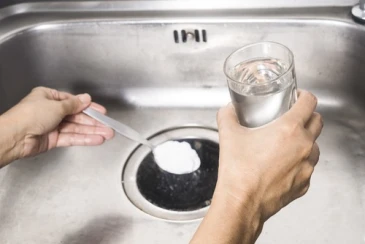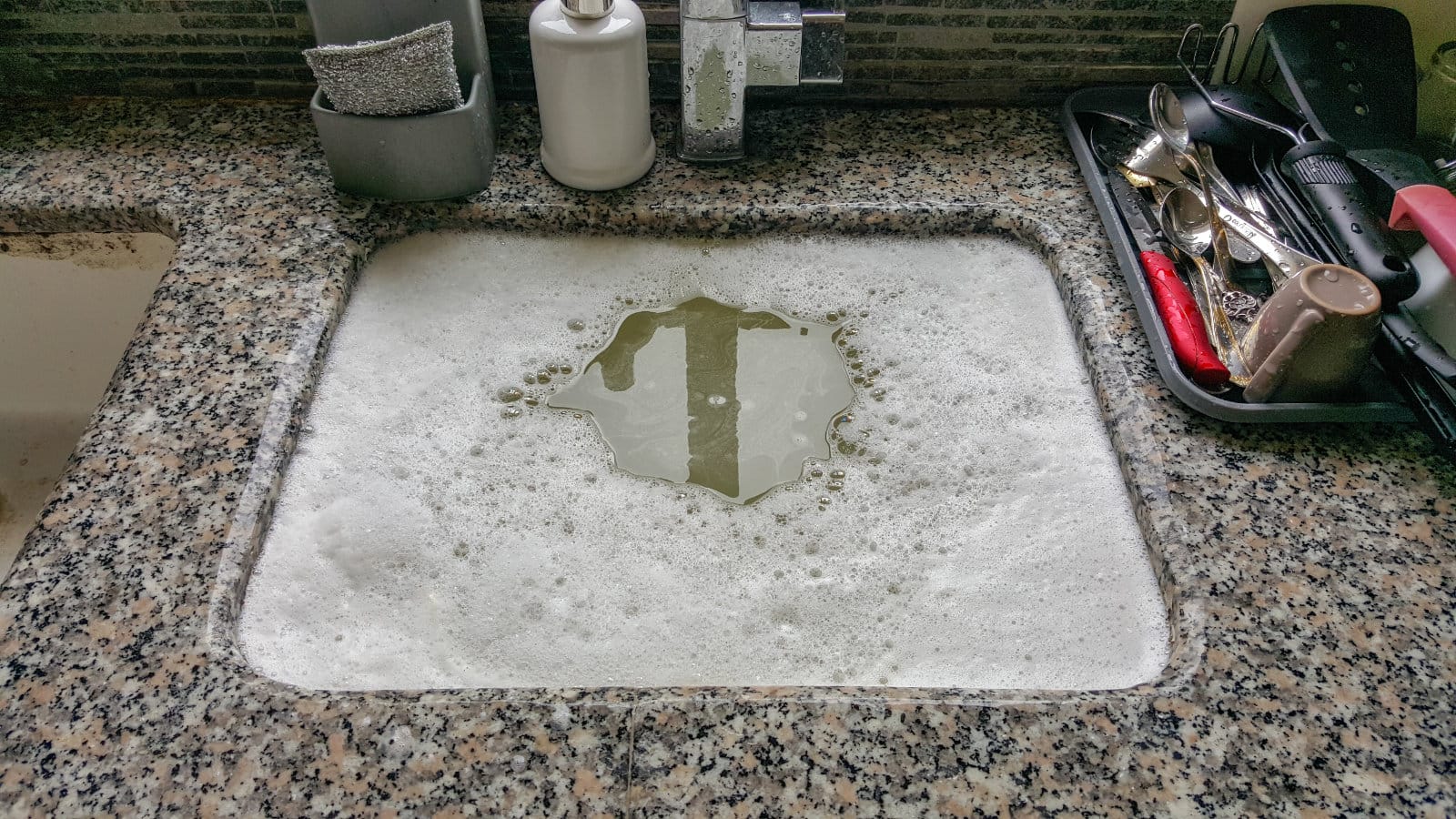We have stumbled on this article on 7 Ways To Fix A Slow-Draining Sink Before You Call A Plumber listed below on the internet and thought it made good sense to discuss it with you on this site.

Intro
We have actually all been there: You're brushing your teeth or cleaning your hands, and you see the water pooling in the sink. Rather than promptly swirling away, it lingers, transforming your once-refreshing morning regimen into a miniature overload scene. A slow-draining sink isn't just aggravating; it's usually an indicator of larger pipes problems hiding under the surface. The bright side is that most slow-draining sinks can be taken care of with a little expertise, a few fundamental tools, and some patience. Prepared to tackle this project head-on? Let's roll up our sleeves and dive right in.
Understanding the Reasons For a Slow-Draining Sink
Before you begin poking around in your pipes, it assists to understand what could be causing the downturn. Recognizing the root cause makes it easier to select the best solution.
Tools and Materials You'll Need
The right devices make all the difference. The good news is, you won't need a totally stocked plumbing technician's van to finish the job.
Step-by-Step Overview to Taking Care Of a Slow-Draining Sink
Now, let's enter the nitty-gritty. This step-by-step process will certainly assist you through basic techniques to restore your sink's water drainage.
Action 1: Get Rid Of and Tidy the Stopper
Typically, the stopper (that tiny plug you push down to obstruct water) is the first perpetrator. Remove it thoroughly and wipe any kind of hair or substance caught around its base. Wash it thoroughly prior to putting it back in place.
Step 2: Utilize a Bettor to Displace Debris
Got that plunger ready? Position it over the drain and give it a couple of company pumps. The idea is to create suction that can loosen up any kind of blockage. If you see bits of debris floating up, you get on the appropriate track.
Action 3: Try a Drain Snake or Cable Hanger
If the bettor doesn't do the trick, it's time to bring out the drainpipe serpent. Carefully feed it into the drain and spin as you go. You could really feel some resistance-- that's most likely the blockage. Keep turning and pulling till you remove the obstruction. If you do not have a drain snake, a corrected the alignment of wire wall mount can operate in a pinch.
Step 4: Use a DIY Drainpipe Cleaner
An all-natural cleaner made from baking soft drink and vinegar can break down recurring grime. Pour half a mug of baking soda into the drainpipe, followed by half a cup of vinegar. Allow it fizz for about 15 minutes, then flush with warm water. This chain reaction commonly does marvels for minor clogs.
Tip 5: Rebuild and Evaluate the Sink
Put every little thing back together and run the faucet. Does the water currently swirl down the drain at a reputable speed? If yes, offer on your own a pat on the back. If not, do not despair-- there are still a couple of more tricks up your sleeve.
Essential Tools for DIY Fixes
A bettor is your go-to beginning factor. A little, sink-sized bettor produces suction that can displace small blockages. For more persistent clogs, a drain snake (in some cases called a plumbing technician's auger) works marvels. A set of gloves, a flashlight, and perhaps a set of protective safety glasses are additionally helpful.
Suggested Cleaning Solutions
Light meal soap and warm water can assist break down oily accumulation. A mixture of cooking soda and vinegar is a reliable natural home remedy, and chemical cleaners supply a more eco-friendly strategy. Keep chemical drainpipe cleaners as a last hope, as they can be severe on your pipelines.
Common Perpetrators Behind Slow Drainage
So, what's blocking points up? Typically, it's a blend of daily particles-- think hair, soap scum, tooth paste deposit, and remaining food bits. With time, these little bits collect and cling to the pipe walls, gradually tightening the passage and making it harder for water to go through. Sometimes, mineral deposits from tough water can additionally include in the gunk, producing the excellent tornado for stubborn blockages.
When is it Time to Act?
If you see the water draining slower than typical, it's a great concept to step in faster as opposed to later. Waiting as well long might lead to complete blockages, unpleasant odors, or even pipe damages. If the water takes greater than a few secs to clear out after turning off the faucet, consider it a warning and prepare yourself to place on your DIY hat.
Security First: Preventative Measures and Preparations
Before you launch into unclogging setting, think about security. You're handling possibly dirty water and particles, so slip on a set of gloves. If you're utilizing chemical cleaners, make certain the area is well-ventilated and follow the directions on the label.
Safety Equipment and Workspace Arrangement
Lay down some old towels or rags around the sink area to capture dashes. Remove any products that could get in your method, like soap dispensers or toothbrush owners. See to it you have great lights-- grab a flashlight if needed.
Alternate Techniques for Stubborn Clogs
Not all blockages are created equivalent. If your sink still declines to work together, consider these alternate solutions.
Sodium Bicarbonate and Vinegar Method
We already discussed this, however it deserves noting once more. This gentle, environment-friendly approach is safer than chemical cleaners and commonly quite effective.
Enzymatic Drain Cleaners
Enzyme-based cleaners utilize all-natural microorganisms to digest raw material. They're an outstanding choice if you're looking to stay clear of harsh chemicals. Just remember, they may take a bit longer to function their magic.
Chemical Drain Cleansers: Benefits And Drawbacks
Chemical cleansers can blast through difficult blockages quick, however they're not without downsides. They can produce warm and fumes, damage pipelines if utilized exceedingly, and pose environmental risks. Utilize them moderately, and constantly follow the instructions meticulously.
Safety Nets to Keep Your Sink Flowing
Avoidance is the most effective treatment. By adopting a few simple routines, you can maintain your sink from slowing down to begin with.
Regular Cleaning Up Routines
Wipe down the sink basin and fixture location routinely. Eliminate hair or food particles before they have a possibility to wash down the drain.
Preventing Dangerous Materials Down The Tubes
Hesitate prior to unloading coffee premises, oil, or coarse veggie scraps down the sink. These offenders cling to pipeline wall surfaces, producing obstructions with time.
Routine Maintenance Checks
Schedule a fast month-to-month assessment. Run hot water through the sink for a few minutes, paying attention to the circulation. If it appears sluggish, act fast before it comes to be a full-blown obstruction.
When to Call an Expert Plumbing
Occasionally, regardless of exactly how tough you try, that clog simply won't move. That's when it's time to bring in the pros.
Indicators That Indicate a Much More Major Concern
If your sink drains pipes slowly in spite of multiple attempts, or if you see water backing up in other components (like your shower or bathroom), you might have an extra serious plumbing issue prowling deeper in the system.
Stabilizing Do It Yourself Efforts with Expert Aid
While do it yourself can save you cash and supply a feeling of accomplishment, there's no pity in calling a specialist. A specialist plumber can evaluate your entire pipes arrangement, making sure there's no underlying damages or long-term issue that could cost you extra later on.
Contrasting Costs and Long-Term Solutions
Before making a decision, consider the big picture. A low-cost, quick fix may resolve the problem temporarily, however purchasing a more long-term solution can conserve you cash and stress in the future.
Weighing the Expenditures of DIY vs. Specialist Fixes
Do it yourself solutions frequently cost little more than the price of a bettor or a container of cooking soft drink. Professional solutions, on the other hand, come with a price tag but might prevent repetitive concerns and expensive repair services later.
Purchasing Quality Fixtures and Upgrades
If your sink's design adds to regular obstructions, it may be worth upgrading to higher-quality fixtures or changing the pipes format. Consider this an investment in your house's functionality and convenience.
Conclusion
A slow-draining sink can seem like a small irritation, however it's usually a sign that your pipes needs a little tender loving care. By comprehending the root causes, utilizing the right tools and methods, and committing to basic preventive measures, you can maintain your sink moving freely. And when all else falls short, never ever hesitate to contact a professional-- your home's pipes deserves the investment in treatment and maintenance.
Three Common Ways to Fix a Slow Drain
Baking Soda Method
Boil a full pot of water. Measure out cup of baking soda and pour it down the drain. Then take cup of the magical cleansing substance known as white vinegar and drop that down there too. Allow the mixture to fizz in the drain for five minutes as the vinegar and baking soda combine. Now dump in that whole pot of boiling water. This combination of cleaning substances should clear out anything that is causing your sink to drain slowly. If it doesn t...
Zip-It
If the baking soda method doesn t clear out your drain, it may be because a significant amount of hair and/or other debris has collected there and you need to remove it. Purchase a Zip-It tool at any home improvement or hardware store and insert it into your drain. It will catch any collected hair or debris that s blocking the flow of water. Pull it out. If it s got a big clump of hair, etc. on the end, you ve probably got your culprit.
Drain Cleaner
If these methods don t work, there is the standard drain cleaner that you can also buy in a hardware store or even your local grocery store. It s better if you can use a household solution, but these drain cleaners often work in a pinch. They re very simple to use. You generally just dump them in your drain and wait. If even this method is not effective, it may be time to call the plumber.
https://www.mrrooter.com/oneida/about-us/blog/2017/july/three-common-ways-to-fix-a-slow-drain/

We were guided to that report on Solved! How to Fix a Slow Sink Drain from a buddy on a different web page. For those who enjoyed reading our page please be sure to share it. I praise you for being here. Kindly pay a visit to our website back soon.
Click Here
 Amanda Bearse Then & Now!
Amanda Bearse Then & Now! Michael C. Maronna Then & Now!
Michael C. Maronna Then & Now! Gia Lopez Then & Now!
Gia Lopez Then & Now! Monica Lewinsky Then & Now!
Monica Lewinsky Then & Now! Sarah Michelle Gellar Then & Now!
Sarah Michelle Gellar Then & Now!